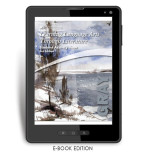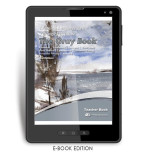We use cookies to make your experience better. To comply with the new e-Privacy directive, we need to ask for your consent to set the cookies. Learn more.
Covers spelling, grammar (parts of speech, punctuation, capitalization, clauses, types of sentences, verb tenses, irregular verbs, phrases, predicates, conjunctions, synonyms, antonyms, and much more), vocabulary, analogies, word study, composition (combining sentences, types of sentences, descriptive writing, interviews, letters, formal and informal writing, narrative writing, persuasive writing, poetry, reports, research, and more). Includes passages from classic literature and the Bible. There are also four full-length book studies. Passages include: Man Called Peter, Luke 10:30-33, "The Gift of the Magi," Little Princess, Twice Freed, Tale of Two Cities, "The Star-Spangled Banner," Matthew 5:43-45, Jane of Lantern Hill, Moby dick, "Immortal, Invisible, God Only Wise," Black Arrow, Pollyanna, Children of the New Forest, "The Rainy Day," Proverbs 6:6-11, White Fang, Prisoner of Zenda, Samuel 16:12-13, No Little People, "How Firm a Foundation," "Beautiful Things."
The four novels studied in this level include: God’s Smuggler, A Lantern in Her Hand, Eric Liddell, and Daddy Long-Legs. You can purchase the 4 novels as part of the Complete Package with the Teacher and Student books, buy them separately, or source them from a local library.
Changes to the 3rd edition include: Daddy Long Legs has replaced Across Five Aprils as a book study. In-depth analogy studies have been added.


































